 Across the globe, card manufacturers continue to face supply chain delays and production challenges, resulting from the pandemic. The impacts are far-reaching, affecting inventory levels, delivery times and, for some, even the ability for companies to fulfill contracts.
Across the globe, card manufacturers continue to face supply chain delays and production challenges, resulting from the pandemic. The impacts are far-reaching, affecting inventory levels, delivery times and, for some, even the ability for companies to fulfill contracts.
The pandemic has prompted suppliers and card manufacturers to streamline their processes and identify local, secondary providers who can, in some cases, complete an entire product build in-house. That allows a swift response to changing market demands, ensuring customers’ orders are fulfilled. Amid the pandemic, streamlining supply chains and identifying domestic suppliers has become critical for reducing shipping times and minimizing shipping logistics costs. If there is a strong rebound in certain markets, card manufacturers and suppliers want to be prepared.
“If a product is complex, requiring multiple steps in the manufacturing process, and the companies performing each step are spread out geographically that can cause delivery delays,” said Alec Doede, technical sales, Superior Tape & Label. “When more steps can be performed under one roof, the better chance you have of avoiding delays.”
In addition to streamlining operations, the pandemic has also prompted many customers and companies to review the fine print of force majeure clauses. Some companies are questioning whether they can invoke a force majeure clause, a contractual provision which excuses one or both parties’ performance obligations when circumstances that are deemed outside of their control make performance of the contract impossible.
“We were proactive in bringing in supplies at the start of the pandemic to avoid delays in case we couldn’t get shipments,” said Reena Teeny, marketing, Superior Tape & Label. “We coat and create our products from the start, so we have more control in the manufacturing process. That allows us to eliminate the upstream middlemen from the process and perform the work in-house so we can inventory much larger quantities of raw materials at a lower cost/risk. Ultimately, that helped us prepare our customers with a buffer supply.”
Force majeure clauses have existed and been included in contracts for quite some time, but now that “fine print” has prompted members of the card industry to ask questions such as: Do suppliers have the capacity to follow through if deliveries are delayed? Does the force majeure clause excuse companies from providing product with no penalty? How will customer needs be addressed if production needs to be shut down or if products are delayed?
“Recently, one of our customers mentioned that she has been signing these types of contracts for more than 30 years,” said Teeny. “She considered small disruptions in deliveries or localized catastrophes, but never on a global scale.”
In light of international shipping delays and borders being shutdown, the pandemic has prompted many card manufacturers to reevaluate inventory levels, identify at least one alternative source for every product and/or partner with companies that provide a single-supplier manufacturing process to minimize future impacts. The pandemic has also highlighted the need for companies to update their contracts with an alternative clause that excludes COVID-19.
“We have two suppliers for all of our raw materials,” said Michael Dorner, CEO of Variuscard. “For example, our main PVC supplier is in Italy and a secondary supplier is in China. COVID-19 has taken our risk management strategy to a completely new level. When the pandemic hit the world at the same time—that was something we could not have anticipated. Not having access to certain products, such as isopropyl alcohol, is a very new problem that we haven’t had to tackle before.”
Rarely have supply chain leaders faced more complex, rapidly evolving conditions as they have during the COVID-19 crisis. But card manufacturers and suppliers are building resilience in anticipation of future challenges, as well as shifting operations to manage disruption.
Suppliers are among many businesses deemed “essential” companies and have remained operational throughout the pandemic, yet the way they operate will be forever changed.
“Companies are reevaluating their supply chains, and now that we really know the firsthand impacts of a pandemic, all businesses will operate a little differently,” Teeny said. “Some countries may even have new import and export procedures and supply chain strategies will likely be changed permanently.”
Want More Industry Insider Insights or a Glimpse into Global Card Trends?
For three decades, ICMA has represented the interests of the card manufacturing industry—which includes manufacturers, personalizers, issuers and suppliers—as its leading global association.
ICMA offers regular educational opportunities, including the web-based Card Industry Training & Education program, which provides information on key areas of the industry, as well as tutorials and webinars from industry experts. ICMA also provides reports on the card market and on personalization and fulfillment statistics to keep members informed of emerging trends and changing forecasts.
Throughout the year, ICMA members have the opportunity to share insights and knowledge by giving presentations at ICMA events, webcasts and tutorials. The organization hosts three in-person conferences each year. The main event is the annual Card Manufacturing & Personalization EXPO and the other two conferences are CardTREX North America and CardTREX Europe. New in 2020, ICMA introduced ICMA Connect, a virtual forum and trade show.
Learn more about the benefits of an ICMA membership.
